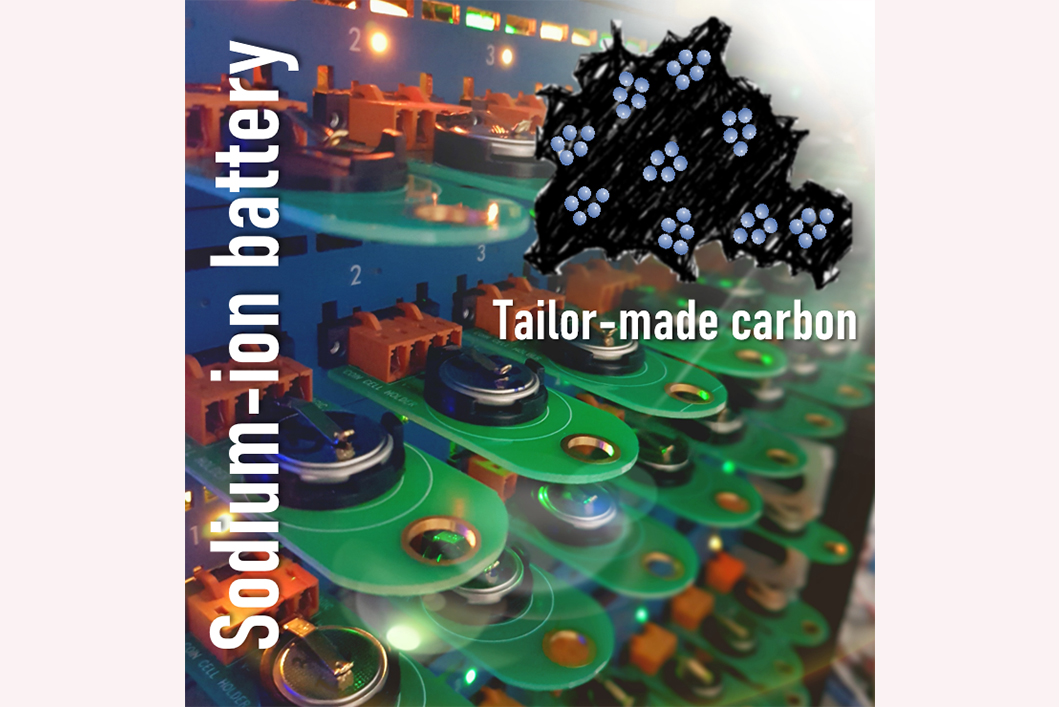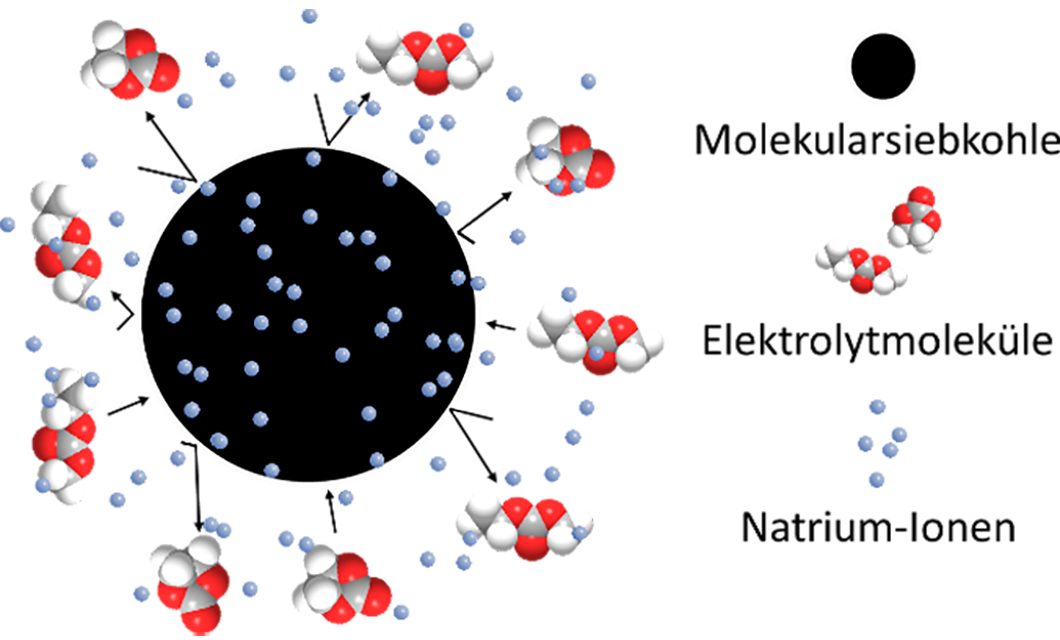
Battery test stand for the "cyclisation" of button cells
Source: BAM
Project period
01/08/2021 - 31/07/2024
Project type
Collaborative research project
Project status
Closed
Description
In DialySorb, the development of novel, functional carbon anodes for sodium-ion batteries (NIB) is planned. The carbon anodes are to have an increased capacity and improved reversibility
Location
Bundesanstalt für Materialforschung und -prüfung (BAM)
Branch Fabeckstraße
Unter den Eichen 44-46
12203 Berlin
DialySorb Source: BAM
Source: BAM
Source: BAM
Source: BAM
DialySorb - Molecular sieving carbons as high-capacity and stable anodes in sodium-ion batteries
DialySorb aims to develop novel, functional carbon anodes for sodium-ion batteries (NIB) with increased capacity and improved reversibility. NIBs can be operated with a similar cell chemistry as established lithium-ion batteries (LIB). The small losses in energy density are countered by improved sustainability, so that NIBs are traded as a resource-saving alternative. However, the properties of the carbon anode are considered a bottleneck of the technology, as the storage mechanism is very complex and not predictable. In addition, it is difficult to study the actual charge storage separately from side reactions, which has so far prevented a precise classification of the technology's possibilities. A Berlin-based alliance of partners with well-complementing expertise is tackling the open questions here. It is about modern carbon chemistry, the production of functional materials and advanced, process-oriented analysis.
Novel carbon anodes will be developed with the function of separating the actual storage from side reactions. At the same time, the aim is to reach higher storage capacities. The side reactions can be reduced to a minimum; this would benefit practical applications. The functional carbon anodes will be prepared with modern but also industrially relevant methods, physico-chemically characterised and tested electrochemically. In addition to advanced characterisation methods (in situ / operando), safety aspects are also taken into account.
Project coordinator
Bundesanstalt für Materialforschung und -prüfung (BAM)
Division Electrochemical Energy Materials
Project partner
Bundesanstalt für Materialforschung und -prüfung (BAM)
HZB - Helmholtz-Zentrum Berlin, Joint Research Group Operando battery analysis
TUB - TU Berlin, Department of Chemistry / Functional Materials
Funding
The DialySorb project is funded by the Federal Ministry of Education and Research (BMBF) as part of "Batterie 2020 Transfer" (funding code: 03XP0410).

Source: BMBF


